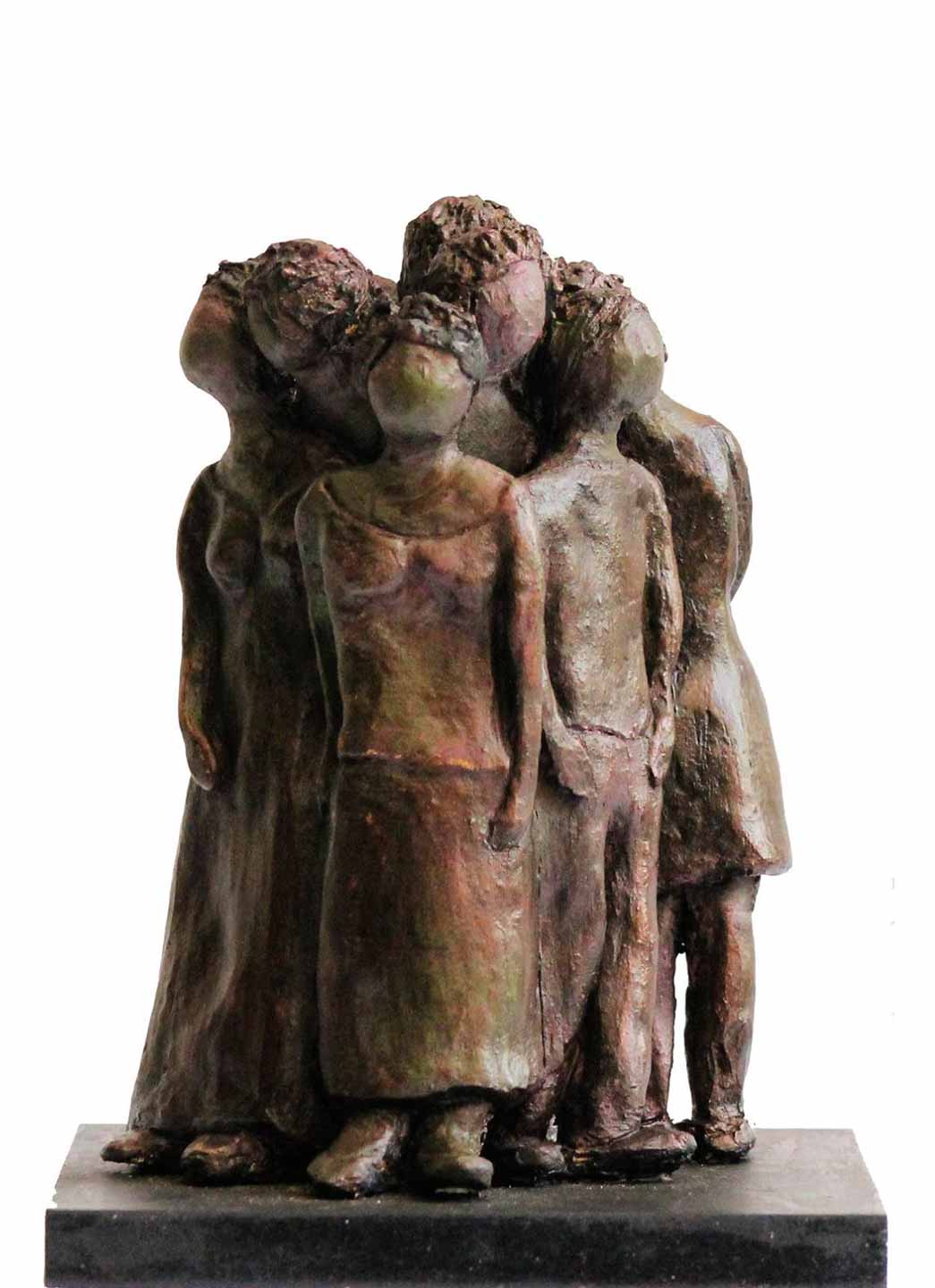MIGRANT
by Lorenzo Figallo Calzadilla. Translated by Alexandra Méndez. Sculpture by Sernelo y Raical.
Dreams, words, ideas, memories, contradictions—all of it is wrapped together in your feelings. The moment of leaving nears. The departure is certain. Your grounding, your emotional world, is in constant movement. There’s an earthquake under your feet and also, very forcefully, in your head. Your thoughts are chaos. Today a doubt arises, tomorrow another. That idea that you have to be daring and do it appears a thousand times in your mind. There is a fear of the destination. What will it be like? Will it work out? Will I find work? Will people accept me or reject me? I made a life here — will it be the same there? Will I have chosen the right place? Should I sell the apartment or wait to see how things go? Will the money I bring be enough? How will the place be for our children? Questions that can’t be answered from here. You have to go and live. The dispersion takes hold of your being and, in parallel, your sanity. Every step must be analyzed.
The existential cycles close. Your ancestors came centuries ago, full of hope. Surely an immense fear accompanied them. Your great-great-grandparents with their parents crossed the oceans in boats. They were full of illusions. When they got here, they were welcomed. In this way, they settled, structured homes, and equally, they opened their doors so that others from over there could come. There was room for everyone; all were well received. The great cycle of universal travelers was once more a fact.
They worked, and family generations were formed. That’s how it’s been; that’s how it was. They wanted this land to belong to their children, their grandchildren, their great-grandchildren, and so on forever, with its sancocho soup, its Araguaneyes trees, and its Turpial birds. Ethnic groups joined together, fed millions of lives, making society. Cultural and genetic diversity, with its richness, nourished humanity.
Fate has rules that are hard to understand. When it was thought that the family stability was guaranteed, reality made its move on the board of history. Political models have a destructive force if they are not based on coexistence and otherness. Disunion and exclusion strengthen tyrannies. The shadow of a totalitarian model had emerged, darkening everything in its path. The country moved — it did so crudely. People learned, painfully, that nothing is guaranteed on this earth. Many people, upon long reflection, began to go away, nearer or farther away, from the land where they were born. Some people have ventured daringly; others have left a little more sure in terms of money and work. Everyone has uncertainty. Families have split. In most homes, someone has migrated.
These days, another family closes the doors of the country. The members who stay say goodbye. They are headed to some other part of chance. All their people are dispersed in great numbers in distant countries. They carry a message in their hearts: to convey to their children how beautiful and generous this land has been. They must tell them that it was here that they were born, grew up, lived, sang, worked, loved, sowed seeds.
You take your last nostalgic walk around the block, the corners of the old house of memories. You take down the paintings. You pull together your emotions. You go over every story: the university choir, the youth chorus, the art, the visit to the geriatric hospital, old Caracas, those photographs — so many happy and sad stories from your memory. Certain things go in suitcases, others in your soul, and some stay behind. Regrettably, there isn’t room for everything. A sepia-colored sadness is your companion. The hour is nearing. Beloved land — how much pain. A grandmother is left crying in her solitude. ■
Join our Facebook Page: https://www.facebook.com/analyticroom/
- Lorenzo Figallo Calzadilla, PhD, is a sociologist and teacher with a clinical background in the fields of Alzheimer’s, neuro-cognitive rehabilitation, and geriatrics. Calzadilla participates and speaks at community and corporate social responsibility programs. As an artist, Lorenzo works in clay. Known as “Raical” and “Sernelo,” Lorenzo and his mother, Rhaiza Calzadilla, have created “Los Caminos del Barro” (The Paths of Mud).
-
Email: lorenzofigallo@gmail.com
ROOM is entirely dependent upon reader support. Please consider helping ROOM today with a tax-deductible donation. Any amount is deeply appreciated. |






